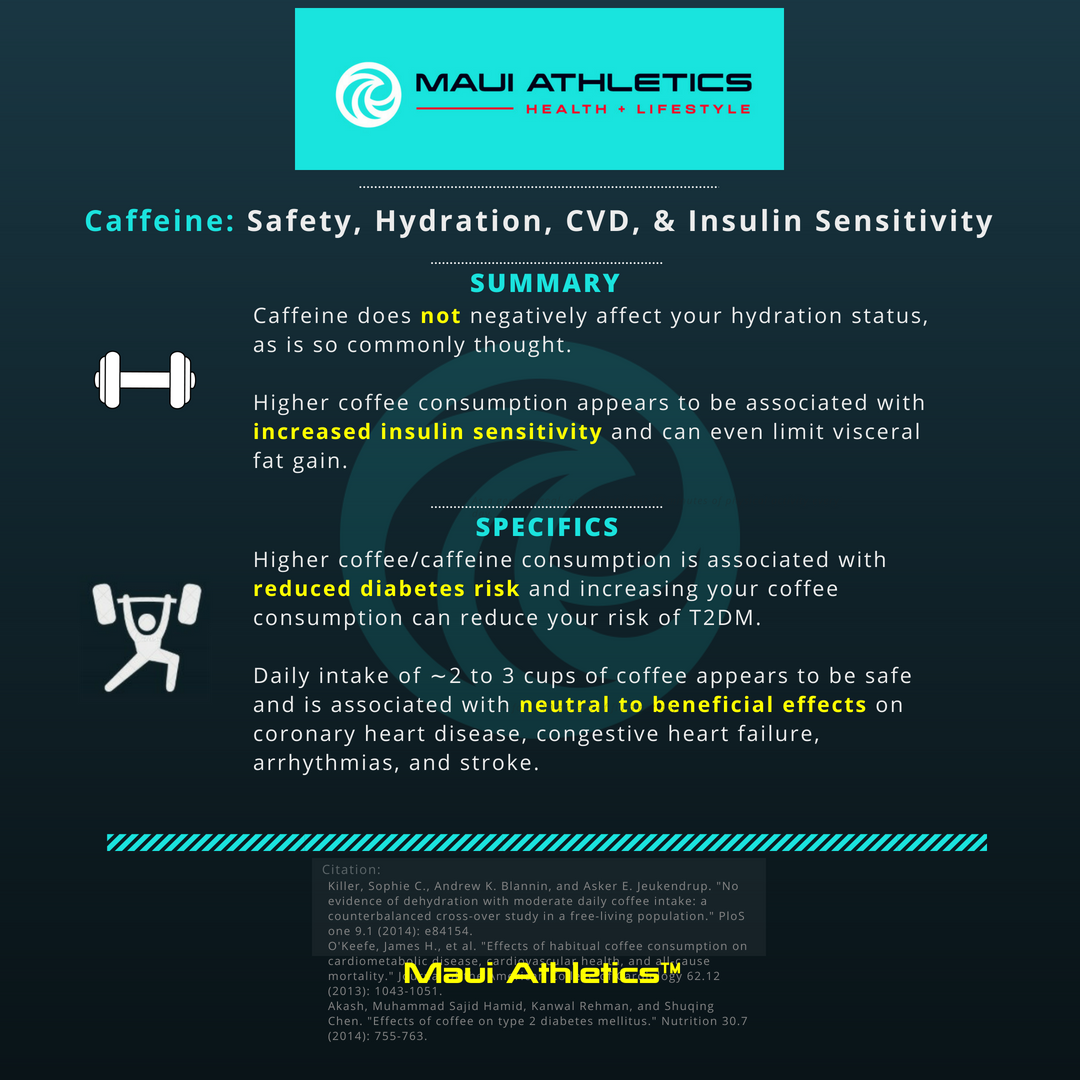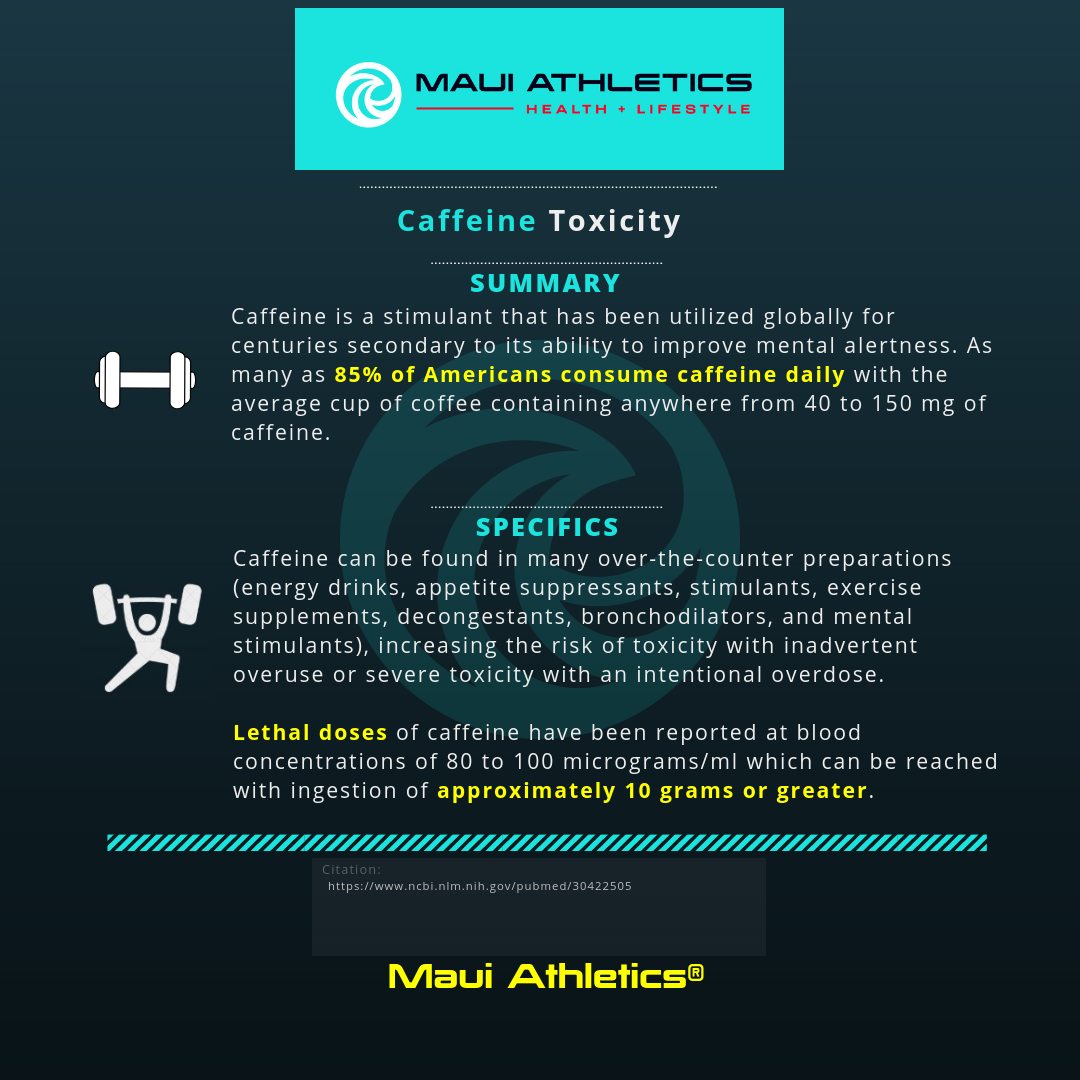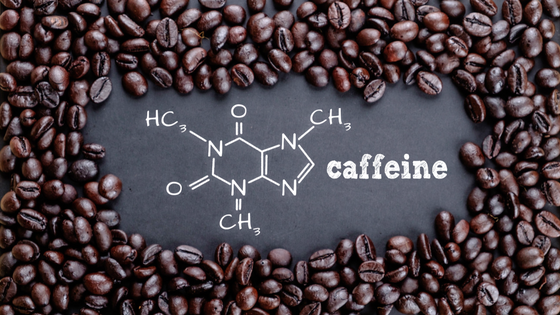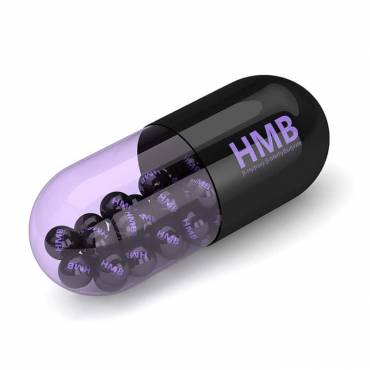Caffeine Safety
Intro
Caffeine is the most ubiquitous supplement available on the market today. So common, in fact, that few take the time to consider it a supplement. Public perception ranges from indifference to fear. California’s Prop 65, a pseudoscientific law which labels everything from sandbox sand to organic fruit to sneakers as carcinogenic, even considered your morning organic coffee worthy of carrying a cancer warning (until coffee industry lobbyists protested). According to research, moderate amounts of caffeine can be ingested daily in a safe manner, and with many potential benefits.
Specifics
The US National Academies of Science (NAS), the European Food Safety Agency (EFSA), the FDA, and Health Canada have stated that caffeine intakes up to 400mg/day are considered safe for the general adult public.1,2,3,11 The European Food Safety Agency recommends that women who are pregnant, planning to become pregnant, or breastfeeding limit their intake to 200mg/day.2 Additionally, the body has natural mechanisms aimed at deactivating the effects of caffeine when it is used chronically. More specifics regarding these mechanisms can be found in our Adrenal Fatigue article.
The EFSA states that consuming ~200mg of caffeine less than two hours prior to intense physical exercise does not pose any health concerns. These aforementioned recommendations are based on long-term caffeine intake and health effects. Short term studies have evaluated acute doses between 400-800mg for performance enhancement with no long-term health effects.9,10 Of practical concern is sleep disturbance caused by ingestion too close to going to bed. Caffeine half-life is wildly variable between individuals, but is approximately 5 hours on average.6 This means that amounts of caffeine can still be found in the bloodstream 10 hours after ingestion.
Caffeine (particularly, but not limited to, coffee) has a myriad of benefits including increased insulin sensitivity, reduced risk of diabetes, and potential benefits on coronary heart disease, congestive heart failure, arrhythmias, and stroke. It also does not negatively affect hydration status as is commonly thought.7
When caffeine is consumed in oral form, toxicity can occur in a healthy adult around 10mg/kg of body weight and lethality can occur around 150mg/kg.4,5,11 This equates to caffeine dosages of 1g and 10g for a 150lbs person, respectively.8 Although toxicity and lethality are rare, of greatest concern are powdered caffeine supplements. Measuring dosage is left up to the individual and can conceivably reach toxic/lethal levels intentionally or unintentionally. Reaching these levels is more difficult through pre-made drinks or coffee. For these reasons, caffeine consumption should be monitored/restricted to prevent any unwanted side effects.
Summary
Although there are concerns with large dosages of caffeine, small to moderate doses do not appear to be of health concern for an otherwise healthy adult. Caffeine comes with a host of potential health and ergogenic benefits. Performance benefits from caffeine can be found in our Performance Supplements article.
Depending on your own genetics and personal tolerance, it is prudent to start low in dosing before titrating up. Prior to supplementing with caffeine, speak with your physician regarding your health status, whether it is appropriate for you, and in what dosages.
Citations
- Food and Nutrition Board. Caffeine in Food and Dietary Supplements: Examining Safety: Workshop Summary. . The National Academies Press. (2014)
- EFSA Panel on Dietetic Products, Nutrition and Allergies (NDA). Safety of caffeine . EFSA Journal. (2015)
- Nawrot P, et al. Effects of caffeine on human health . Food Addit Contam. (2003)
- Temple JL, et al. The Safety of Ingested Caffeine: A Comprehensive Review . Front Psychiatry. (2017)
- Yen M, Ewald MB. Toxicity of weight loss agents . J Med Toxicol. (2012)
- Committee on Military Nutrition Research, Food and Nutrition Board. Caffeine for the Sustainment of Mental Task Performance: Formulations for Military Operations . . (2001)


- Desbrow B, et al. The effects of different doses of caffeine on endurance cycling time trial performance . J Sports Sci. (2012)
- Beaven CM, et al. Dose effect of caffeine on testosterone and cortisol responses to resistance exercise . Int J Sport Nutr Exerc Metab. (2008)
- https://www.fda.gov/consumers/consumer-updates/spilling-beans-how-much-caffeine-too-much









